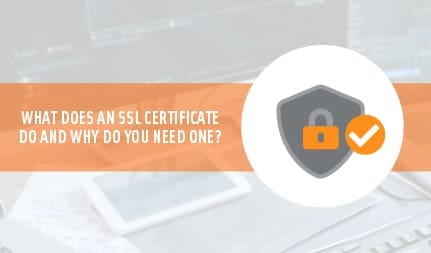 SSL stands for secure sockets layer. If you are looking at your website URL and do not see https:// in front of it and only https://, then chances are you do not have an SSL certificate. So what is it and why do you need one?
SSL stands for secure sockets layer. If you are looking at your website URL and do not see https:// in front of it and only https://, then chances are you do not have an SSL certificate. So what is it and why do you need one?
Having SSL enabled on your website, ensures that your data is encrypted or scrambled to make it unreadable as it passes through the internet. When you send data like usernames and passwords or complete a webform online, the SSL will encrypt the information you type as it passes through the internet from your computer to the destination server. As your inputted information makes its way through the internet, it may pass through several servers on its way to the destination server.
Once your encrypted information arrives at the destination server, it is then unencrypted and read by humans. If you do not have an SSL enabled, the data can be read by anyone as it passes through the various servers on the way to the destination server. A “man in the middle” could intercept the information you sent from your computer to the webserver and potentially lead to fraud and identity theft.
But how many types of SSL certificates are there, and what’s the difference between them? To date, three variants exist, Domain Validated (DV SSL), Extended Validation (EV SSL), and an Organization Validated (OV SSL).
The lowest level of security for a website is DV SSL, which offers protection without the wait time and vetting of an OV SSL, which is the next rung-up in security. Both provide the Secure Sight Seal seen in website footers. An EV SSL certificate is the top-tier for optimal site security and is used primarily for businesses and government agencies.
SSL can help by:
- Protecting your data
- SSL affirms your identity
- Better search engine rankings
- SSL enables you to satisfy PCI/DSS requirements
- SSL improves customer trust
- Preventing web browsers from displaying “not secure” warnings
So if you want visitors to trust your website and to feel safe, you must have an SSL certificate installed on your website. Not only will you give your website visitors some peace of mind, but you will also receive other perks such as those mentioned above by making sure your website has an active SSL certificate installed.
That being said, SSL certificates do not last forever. When an SSL expires, it needs to be updated. How is this accomplished? SSL certificates are purchased annually through online vendors. Be sure to renew your certificate once a year to keep it active!

